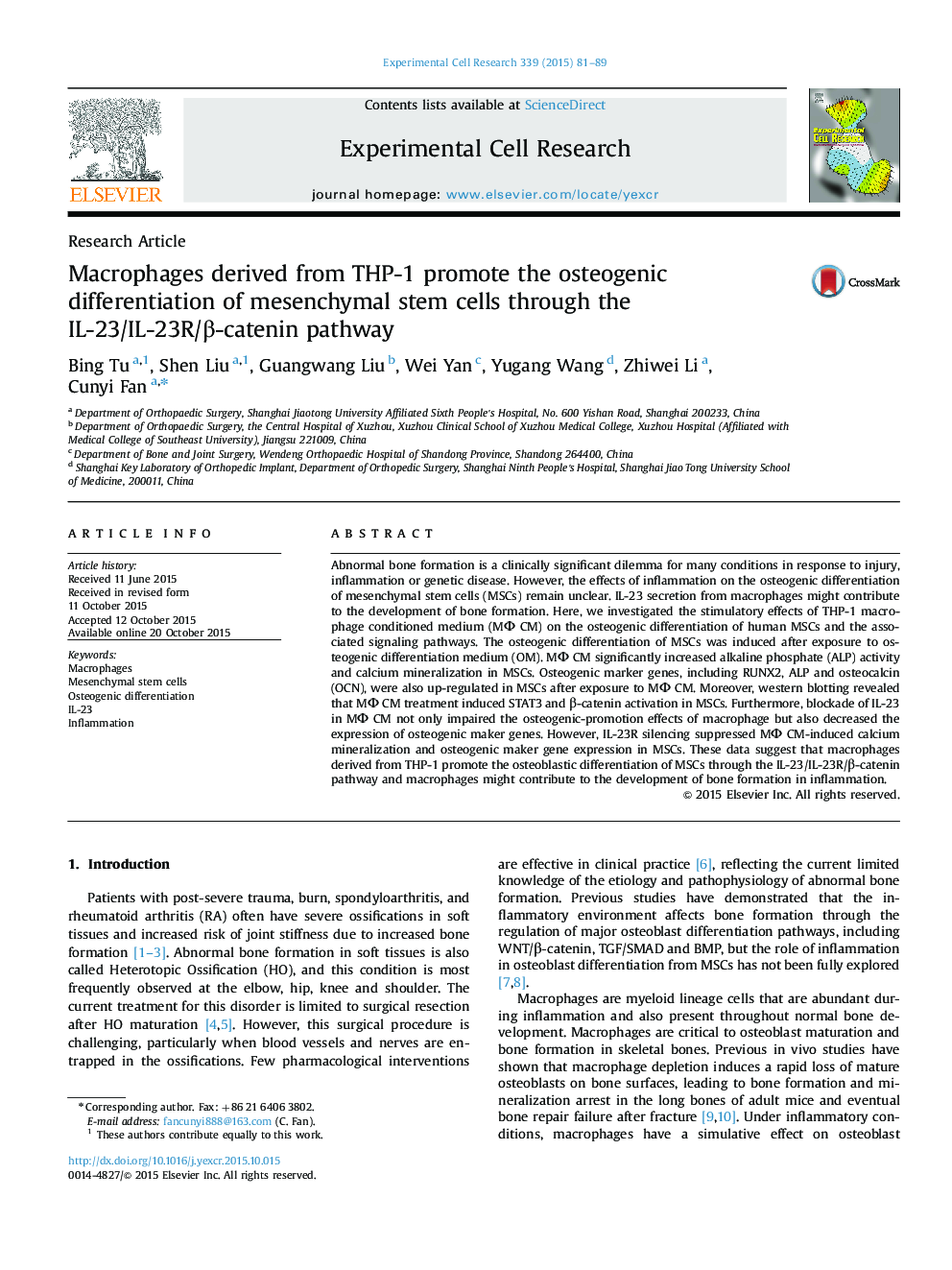| Article ID | Journal | Published Year | Pages | File Type |
|---|---|---|---|---|
| 2130089 | Experimental Cell Research | 2015 | 9 Pages |
•Macrophages promote the osteogenic differentiation of MSCs through IL-23 secretion•IL-23 binds to IL-23R in MSCs and enhances the expression of osteogenic marker genes.•IL-23 activates the STAT3 and β-catenin pathway and inhibits the expression of DKK1.•Macrophages contribute to excess bone formation under inflammatory conditions.
Abnormal bone formation is a clinically significant dilemma for many conditions in response to injury, inflammation or genetic disease. However, the effects of inflammation on the osteogenic differentiation of mesenchymal stem cells (MSCs) remain unclear. IL-23 secretion from macrophages might contribute to the development of bone formation. Here, we investigated the stimulatory effects of THP-1 macrophage conditioned medium (MΦ CM) on the osteogenic differentiation of human MSCs and the associated signaling pathways. The osteogenic differentiation of MSCs was induced after exposure to osteogenic differentiation medium (OM). MΦ CM significantly increased alkaline phosphate (ALP) activity and calcium mineralization in MSCs. Osteogenic marker genes, including RUNX2, ALP and osteocalcin (OCN), were also up-regulated in MSCs after exposure to MΦ CM. Moreover, western blotting revealed that MΦ CM treatment induced STAT3 and β-catenin activation in MSCs. Furthermore, blockade of IL-23 in MΦ CM not only impaired the osteogenic-promotion effects of macrophage but also decreased the expression of osteogenic maker genes. However, IL-23R silencing suppressed MΦ CM-induced calcium mineralization and osteogenic maker gene expression in MSCs. These data suggest that macrophages derived from THP-1 promote the osteoblastic differentiation of MSCs through the IL-23/IL-23R/β-catenin pathway and macrophages might contribute to the development of bone formation in inflammation.
